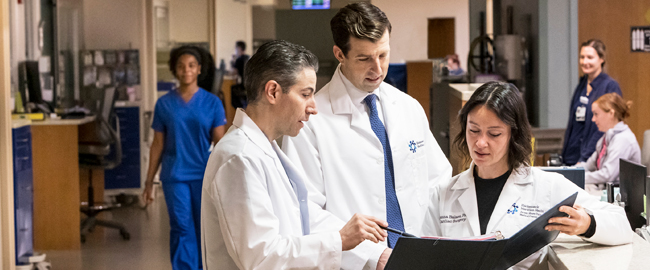

Cardiac Stress Testing in New Jersey
What is a Cardiac Stress Test? How does it work?
A cardiac stress test determines how well the heart is working under physical stress. Typically the test involves walking on a treadmill or riding a stationary bike to monitor the heart’s activity. Exercising makes the heart pump harder and faster, so a cardiac stress test helps reveal issues with blood flow in the heart.
Some reasons a doctor orders a cardiac stress test include:
- Arrhythmias - heart beats too fast, too slow or irregular
- Congenital heart disease - defects in the fetus heart
- Congestive heart failure - heart muscle is weak and can’t pump enough blood to the body
- Coronary artery disease- narrowing of the coronary arteries caused by the buildup of fatty materials called plaque
- Heart valve disease- when heart valves become damaged, they can block flow in the heart
Frequently Asked Questions
Why Choose Us for Heart Care
Our heart experts perform New Jersey's most successful minimally invasive heart surgeries. Hackensack University Medical Center has earned the distinction of being the best Cardiology, Heart & Vascular Surgery program in NJ from U.S. News & World Report.
Cardiac Stress Test Specialists in New Jersey
Our highly skilled team of heart specialists perform more than 3,000 procedures every year, including advanced, minimally invasive approaches. We provide exceptional cardiac treatment and personalized care to help you recover as quickly and safely as possible.




